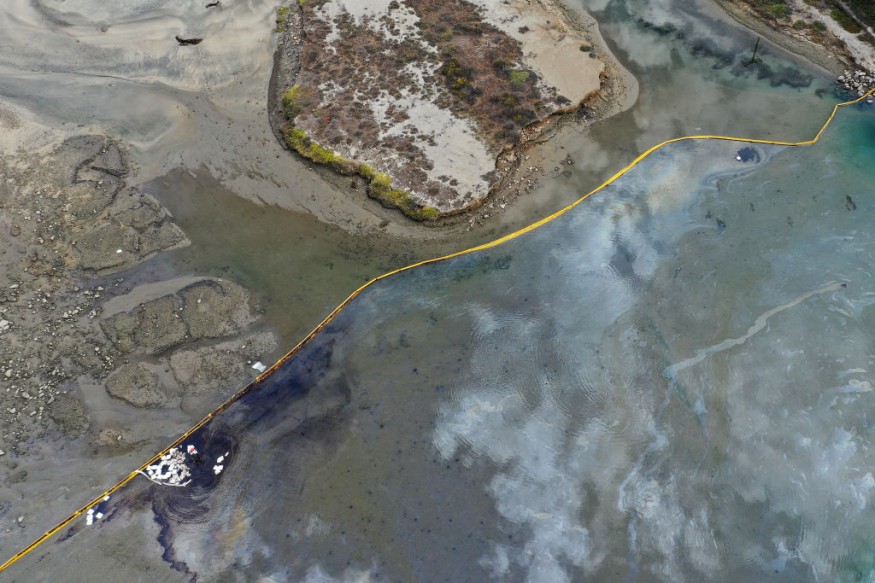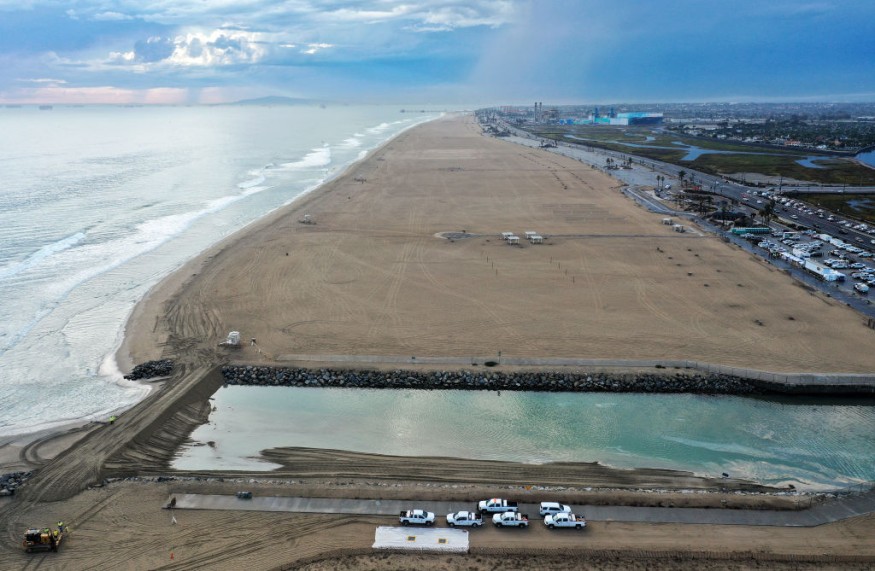A Houston-based oil corporation and two subsidiaries have been charged in connection to a large oil leak that occurred off the coast of southern California in October, contaminating seas, beaches, and endangering animals.

=
Legal Proceedings
Prosecutors claim that part of the cause of the leak was a failure to respond appropriately when alarms repeatedly warned personnel of a pipeline breach.
A federal grand jury indicted Amplify Energy and its subsidiaries, which operate numerous oil rigs and a pipeline off the coast of Long Beach, with a single misdemeanor offense of unlawfully dumping oil.
Investigators suspect the pipeline was damaged when the anchor of a cargo ship grabbed it in heavy winds in January, months before it exploded on October 1 and spilled up to 25,000 gallons (94,600 liters) of crude oil into the ocean.
Irresponsibility
According to US authorities, the corporations were found to be irresponsible in six ways, including failing to respond to eight leak detection system alerts over a 13-hour period that should have alerted them to the spill and reduced the damage. Instead, the pipeline was shut down after each alert and then reactivated, pouring more oil into the water.
Amplify claimed the pipeline was displaced by an unidentified shipping firm. That staff on and offshore responded to what they thought were false alerts since the system wasn't working correctly. According to the corporation, it alerted a potential leak at the platform where none existed.
According to Amplify, the leak came from a portion of subsea pipe 4 miles (6.4 kilometers) distant.
The business stated that "had the staff understood there was a genuine oil leak in the water, they would have shut down the pipeline immediately."
Monumental Leak

The leak washed up on the beach at Huntington Beach, forcing the city's beaches and others around the Orange County coast to close for almost a week. Fishing in the affected area has only just restarted after tests revealed that the fish did not contain dangerous levels of oil pollutants. It also contaminated sensitive wetlands, which are important habitats for migratory and shorebirds and other endangered species. Even after the black globs were cleaned off the beaches, it's still unknown how much of a long-term impact the spill had on plants and animals.
The corporation faces up to five years of probation if convicted and fines that might reach millions of dollars.
According to Orange County Supervisor Katrina Foley, the indictment verifies locals who saw the leak a day earlier and reported it.
"It's unfortunate that they practically misled to the community during press conferences and led people to believe that what they saw, smelled, and knew with their own eyes was not real," she added.
Discussing the Indictment
According to pipeline safety advocate Bill Caram, the indictment presents a picture of a careless firm.
"I realize that leak detecting systems might produce false positives, but this is our prized coastline," said Caram, director of the Pipeline Safety Trust in Bellingham, Washington. "It's dangerous and atrocious that they continued pushing the snooze button and disregarding alerts, stopping and resuming this pipeline while spewing oil into the Pacific Ocean."
Prosecutors also discovered that the pipeline was understaffed, the crew was tired, and the leak detecting system was not well-trained.
According to pipeline expert Ramanan Krishnamoorti of the University of Houston, the indictment's portrayal of firm staff as weary alluded to a long-standing industry issue.
He remarked, "Fatigue and overworked personnel is old, clichéd, and unforgivable." "This has been proven to be the single most crucial weakness time and time again."
Also Read : Scientists to Train Tiny Robots to Suck Oil Spills and Remove Toxins From Drinking Water
For similar news, don't forget to follow Nature World News!
© 2025 NatureWorldNews.com All rights reserved. Do not reproduce without permission.





